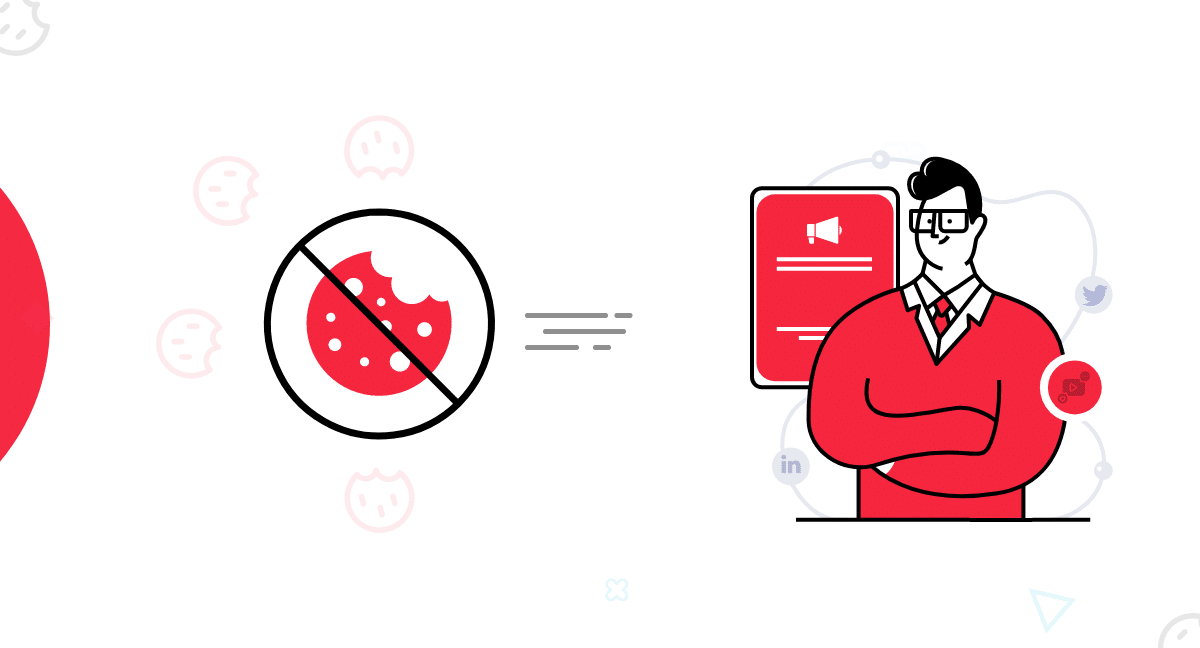The most popular web browsers including Chrome and Safari have sent shockwaves to digital marketers with their decision to deprecate the third-party cookie. Cookies have been instrumental in targeting efforts of digital advertisers. So, it is little surprise that many have been scrambling to understand what the cookieless future will look like. Naturally, they want to know its impact on the digital marketing ecosystem. And, reams have been written about this cookieless future. But we are here to present an unpopular opinion.
Going cookieless is not the end of the world
We could have done much better than the third-party cookie right from the get go.
Advertising is becoming increasingly people-centric and marketers are continuously striving to hyper-personalize their strategies. In such times, cookies just don’t make the cut due to several limitations.
Cookies are device-specific and don’t share data about a user across different screens. That’s the first point of contention we have had with cookies, and the industry is finally catching up.
Consumer privacy matters.
Thanks to cookies, the digital advertising ecosystem gets a bad reputation for wanton data collection. In 2021, consumer privacy matters far more than a few retargeted ads. In fact, consumers have for long disdained digital marketing bread and butter practises such as retargeting. Legal frameworks like the GDPR and CCPA are fast catching up.
With the end of the third-party cookie, marketers have a fresh opportunity to start a relationship with their customers in trust, privacy, and value exchange. We cannot overstate the importance of this in the long term.
First party data sits at the core of the new brand-consumer relationship.
Google is only phasing out third-party cookies, not first party cookies. So brands still have a strong hold over their first party data. It’s 2021, and marketers should have been making the move to value exchange-based first party data regardless of deprecation of third-party cookies.
With privacy regulations evolving at the pace at which they are, marketers need to be prepared for anything legal frameworks throw their way. When first party data powers advertising, brands do not need to worry about whether they have collected customer data in a privacy compliant manner. Brands must offer the right kind of value exchange to customers, such as hyper-personalized experiences. Then, customers too freely share their data with brands in a privacy compliant manner. And, this healthy value exchange will be the driving force of the future of digital advertising.
Marketing in the times of privacy – a reliable data and technology partner can go a long way.
What do such partners bring to the table? To begin with, a privacy-first mindset. Naturally, they are able to bridge the business needs of brands and evolving privacy needs of regulators and customers. They should be able to combine these insights to deliver the best outcomes. Also, these partners must be sufficiently agile and pivot quickly and continuously to address key risk indicators of information security.
Naturally, reliable data and technology partners secure consumer data and prevent any potential breaches. Also, they deliver complete transparency in how they collect data, what kinds of customer data they collect, and how they process and use it. Anonymized and aggregated insights are obvious. And, these partners inform customers how they will process and use customer data.
ReBid was born in the times of evolving consumer privacy. Privacy as well as value exchange are part of our DNA. Our CDP will help you in activating digital campaigns in the cookieless world. Still worried about the cookie-less future of advertising? Talk to us, we are ready to navigate to the future – and we will take you with us.





